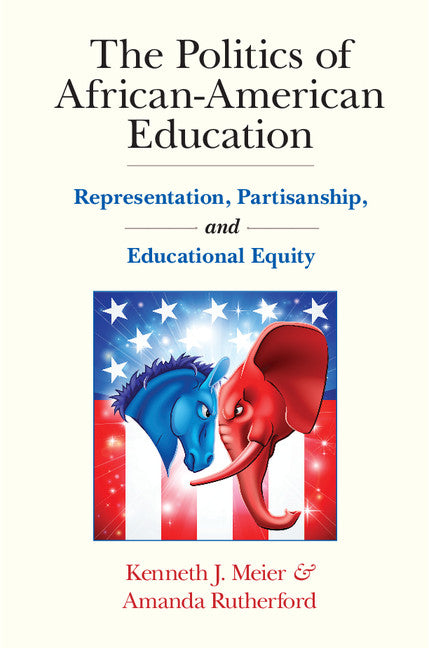Freshly Printed - allow 4 days lead
Couldn't load pickup availability
The Politics of African-American Education
Representation, Partisanship, and Educational Equity
The book provides a comprehensive assessment of current African-American education policy and its politics.
Kenneth J. Meier (Author), Amanda Rutherford (Author)
9781107512535, Cambridge University Press
Paperback / softback, published 22 August 2016
236 pages, 25 b/w illus. 59 tables
22.8 x 15.2 x 1.4 cm, 0.35 kg
'Americans traditionally have preferred to think or pretend that race and partisanship both are barred at the schoolhouse door. Employing a range of data, Meier and Rutherford show that's not the case and, indeed, that race and partisanship interact to influence education of African American children in interesting and important ways.' Jeffrey R. Henig, Columbia University, Co-author of The Color of School Reform.
Based on the 1,800 largest school districts in the United States over a decade, The Politics of African-American Education documents the status of African-American education and the major role that partisanship plays. The book brings together the most comprehensive database on minority education to date that centers around three arguments. First, partisanship permeates African-American education; it affects who is elected to the school board, the racial composition of school administrators and teachers, and the access of African-American students to quality education. Second, African-American representation matters. The effectiveness of African-American representation, however, is enhanced in Democratic districts while representation in Republican districts has little influence. Third, political structures matter, but they are not determinative. Two different structures - election rules and the independent school district - create the rules of the game in US education politics and policy but do not limit others from using those rules to change the outcome.
1. Representation, partisanship and equality in education
2. Two myths: separate but equal and nonpartisan education
3. The politics of African-American school board representation: partisanship, structure and resources
4. Race and the street level bureaucrats: with a little help from my friends
5. Partisanship, teacher representation and access to education opportunities
6. Race, politics and student learning
7. Can you beat the ovarian lottery?
Subject Areas: Constitution: government & the state [JPHC]


